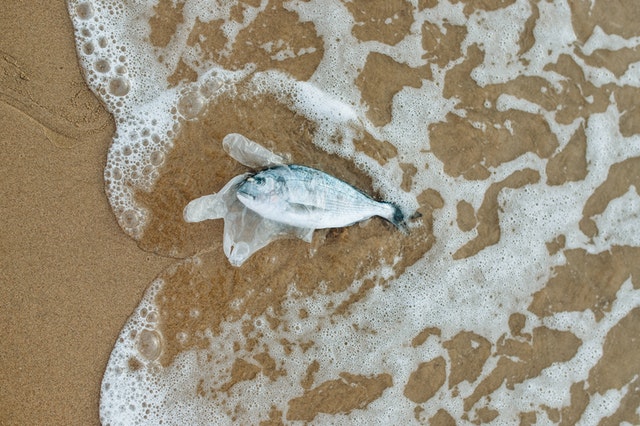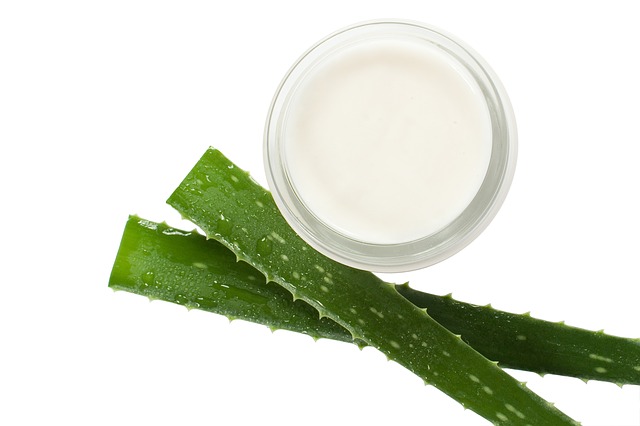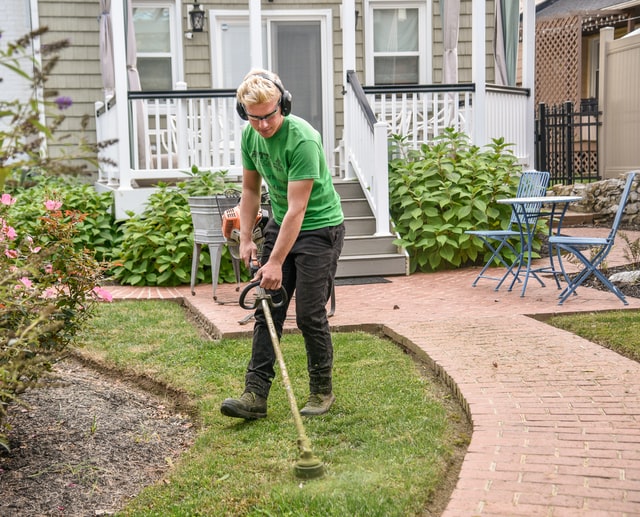
Although it may not be discussed frequently, ocean acidification is one of the biggest problems humanity (and the environment) faces today. The rising acidity of the ocean is not only harming biodiversity and marine ecosystems, but is impacting human industries that rely on the ocean’s resources.
While the best way to stop ocean acidification is to reverse climate change, there are other smaller steps we can take that can make a difference. This guide will provide you with 5 ways that individuals can help combat ocean acidification.
Why Is Ocean Acidification Happening?
So what is causing ocean acidification? Ocean acidification occurs when atmospheric carbon dioxide increases. This excess carbon dioxide is absorbed by the ocean, where it undergoes a chemical reaction that ultimately raises the acidity level of the ocean.
Ocean acidification is also caused by industry runoff and agricultural runoff, like pesticides and fertilizers, washing into the ocean. When these chemicals are introduced into the water, they not only increase the acidity, but may become more toxic under acidic conditions.
Even small increases in acidity can have major impacts on marine life. For example, increased acidity kills off organisms at the bottom of the food chain and makes it more difficult for shelled creatures to build shells. Acidification also destroys a major ocean habitat, coral reefs, as it is more difficult for coral to build their skeletons. The entire ocean food chain, and therefore the entire ecosystem, is thrown off balance by ocean acidification.
In turn, these impacts on marine life affect humans. Many humans and industries rely on ocean resources to make a living. It is estimated that ocean acidification will result in the loss of over $140 billion.
It’s not too late; the National Climate Assessment explains that if we act now, we can avoid damaging the ocean and our fishing industries. Here are some ways you can work to slow ocean acidification.
1. Reduce your carbon footprint
The best way to stop ocean acidification is to emit less carbon dioxide, so that the ocean does not absorb the excess. There are many small steps you can take to reduce your carbon footprint, including (but not nearly limited to):
- Driving less – Cars are a big emitter of greenhouse gases like carbon dioxide. When possible, carpool, bike, walk, or take public transportation.
- Conserving water – Believe it or not, the processes that get water into your home emit greenhouse gases. Use water wisely and intentionally, and try not to waste too much unnecessary water.
- Buying sustainably made products – Before buying anything, it’s worthwhile to do some research into that company’s habits. Some companies emit large amounts of greenhouse gases with no efforts to become more efficient, while others are committed to reducing their carbon emissions.
- Buying fewer items – Producing and selling consumer items can be extremely carbon intensive, so buying less will help reduce those emissions. If you must buy something, try and buy an eco-friendly version with a lower carbon footprint. For example, buy clothes made from recycled materials.
Read more about how to reduce your carbon footprint in our article, “Is It Possible to Prevent Global Warming?”.
2. Use natural fertilizers and pesticides
Because all water on land eventually leads to the ocean, harmful chemicals from fertilizers and pesticides make their way into the ocean, causing ocean acidification and chemical pollution.
If you have a garden, make sure to use natural fertilizers, weed killers and pesticides, rather than releasing those chemicals into the ocean through runoff. For example, consider using an at-home vinegar-based weed killer, rather than toxic sprays like RoundUp. Not only is this better for the environment, but it is also cheaper!
Support pesticide-free farming practices by buying organic. Reducing the use of pesticides and fertilizers in agriculture is also a major step we can take to fight ocean acidification. While some argue that reducing pesticide use would harm the agricultural industry, several studies have found that less pesticide use can actually increase crop yields.
In light of the growing awareness around environmental issues, it’s crucial to address not only ocean acidification but also related health risks associated with certain human activities. One significant concern is the use of pesticides and fertilizers, such as Roundup weed killer, which has been the subject of lawsuits due to its alleged link to causing cancer. The Roundup weed killer lawsuit underscores the importance of examining the broader consequences of chemical runoff from agriculture on both the environment and human health. By adopting natural alternatives and supporting organic farming practices, individuals contribute not only to mitigating ocean acidification but also to minimizing health risks associated with harmful chemicals. Understanding the interconnectedness of issues like ocean acidification and the Roundup lawsuit is vital for fostering sustainable practices that benefit both the environment and human well-being.
3. Support responsible companies
Industry runoff, wastewater, and illegal dumping of chemical wastes can contribute to ocean acidification and pollute the ocean with toxic substances. Supporting responsible companies is a great way to contribute to the fight against ocean acidification.
It can be difficult to know whether a company is responsible with its waste. One way to tell is if a company has undergone a third-party environmental audit, which reviews the company’s protocols for environmental safety. If a company is not complying with any environmental regulations, an environmental audit will bring this to light.
Some companies also place “green” stamps on their products that show it was produced sustainably. There are a number of different green labels, including Green Seal, which shows customers a company meets high standards of safety and sustainability.
4. Support nonprofits working to fight ocean acidification
There are a number of organizations doing important work to fight ocean acidification.
Some organizations, like the Australian Institute of Marine Science, are focused on researching ocean acidification and its impacts. Research and knowledge-gathering is an important step in stopping ocean acidification, as we need the information to know how and what to focus on.
Other organizations like Oceana and the Ocean Project focus on ocean conservation and helping reverse some of the effects of ocean acidification.
The Ocean Foundation’s International Ocean Acidification Initiative helps both scientists and policymakers understand, monitor, and address ocean acidification on a local and global scale.
Donating money is not the only way to support these organizations, although it is always appreciated. Consider finding an organization that needs volunteers and spending some time contributing in that way. Even something as simple as signing your name to a petition makes a difference, and hardly takes a minute out of your day.
5. Contact your policymakers
Lastly, consider contacting your policymakers to ask them to pass legislation to combat ocean acidification, and by extension, climate change. For example, carbon taxes on companies’ carbon emissions may be an effective way to reduce global carbon emissions.
Other government policies that can help address ocean acidification include providing funding to ocean acidification research or regulating chemicals used in pesticides.
Call or write your local or federal government representatives to ask them to act on ocean acidification.



